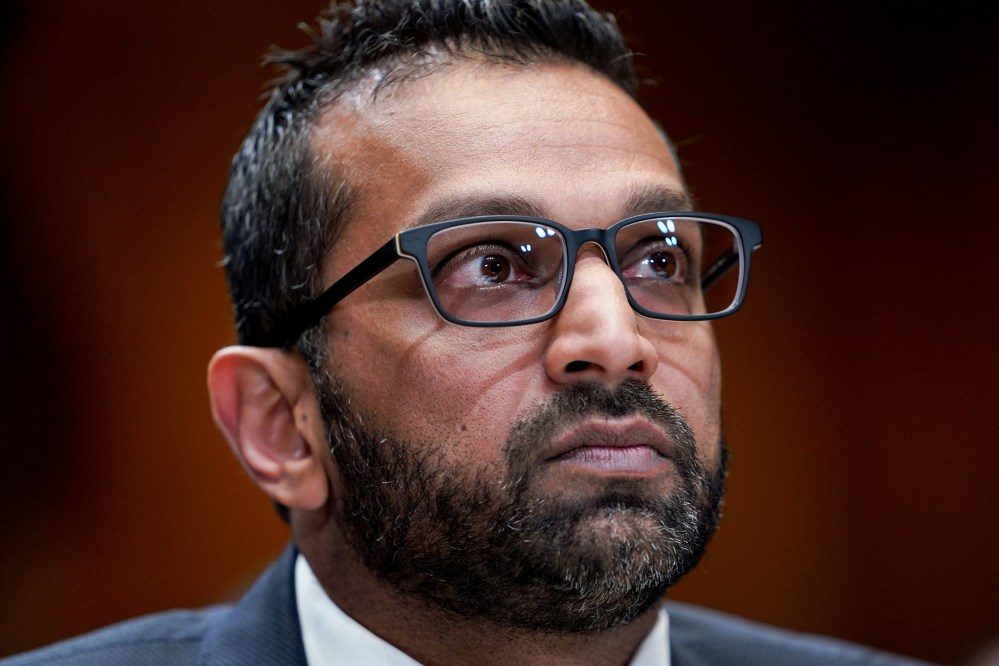An unprecedented campaign by FBI leaders to force senior bureau officials out of their jobs has disproportionately hit women and people of color, according to public records and an unofficial tally by current and former FBI officials.
In the most recent example, FBI leaders last week forced the resignation of a decorated female Pakistani American counterterrorism agent who was appointed in February to run the Salt Lake City field office, one current and two former FBI officials tell MSNBC.
At least 18 of 53 special agents in charge — who run FBI field offices around the country — have been pushed out under the Trump administration — and among them, half have been women, people of color or both, according to data provided by current and former FBI officials who declined to be named, citing fear of retaliation.
In addition to the SACs, as they are known, other top bureau officials have been removed or forced to retire, including top managers at headquarters and elsewhere around the country.
The purge in the FBI’s leadership ranks is without precedent in its modern history.
The purge in the FBI’s leadership ranks is without precedent in its modern history, current and former officials say. FBI executives, including special agents in charge and other senior managers, are career civil servants who typically are promoted or transferred based on internal bureau requirements — regardless of who sits in the White House.
The latest moves are undoing decades of work by the bureau — across administrations — to diversify top ranks, which top officials long argued would build public trust and offer different perspectives during an investigation, something former FBI Director James Comey called “orbiting a situation.” Improving relations with the American Muslim community has also been a priority given high-profile controversies over the agency’s counterterrorism surveillance.
As of last year, women comprised around 21% of the heads of the 56 field offices, according to the FBI, up from 7% in 2002. (Three field office leaders hold the title of assistant director.) Currently, it’s unclear what percentage of SACs are women.

Some current and former officials say they see a clear pattern.
“If an agency’s political leaders have antipathy toward diversity and inclusion, as we know the FBI’s do, it’s fair to assume they believe that women and people of color in top career positions got there because of identity,” said Stacey Young, executive director of Justice Connection, a nonprofit organization advocating on behalf of FBI and Justice Department employees. “Women and people of color in very senior career roles — top performers with stellar records —have been pushed out at disproportionately high rates. We fear discrimination is at least part of the reason why.”
The FBI also brought back a requirement — decades after it was dropped — that agent trainees complete at least one strict pullup, a movement that even many strong and athletic women can’t complete even with training because of the differences in weight distribution in male and female bodies. That requirement would create constraints in other areas of national security; in a study of about 300 more-fit-than-average female U.S. Marines, just 43% could do a single pullup without specific training. Critics say this mandate will inevitably reduce the number of female agents.
In a statement to MSNBC, FBI spokesman Ben Williamson said the agency makes personnel decisions “based on merit and job performance” and does not comment on individual cases.
“The suggestion that Kash Patel — the first Indian-American to ever be confirmed as FBI director — is somehow targeting minorities in the Bureau is one of the most absurd claims I have ever heard,” he said.
Current and former officials say the leadership purge is being driven by additional factors that they see as equally problematic.
Other current and former officials say the leadership purge is being driven by additional factors beyond race and gender that they see as equally problematic. They say Patel and Deputy Director Dan Bongino have created a climate within the bureau that demands absolute loyalty from senior leaders in which any hint of dissent is considered risky.
Several current and former officials say the bureau has been administering polygraph tests to employees suspected of leaking stories to the news media that have been embarrassing to Patel and Bongino. (The agency has declined to comment on polygraphs, citing its refusal to discuss internal and personnel matters.)
One FBI agent told MSNBC about a recent meeting in which a career FBI leader with a good reputation went out of his way to effusively praise Patel and Bongino, whose lack of experience and past criticism of the agency have made them unpopular among its rank-and-file officers, current and former officials say.
“It was like watching a hostage video in real life,” the agent, who was present at the meeting, said. “He couldn’t repeat Kash’s talking points enough. I felt sad for the guy.”
One female leader who was among those forced out told MSNBC: “What’s more concerning to me is that they are getting rid of anyone with the experience and knowledge that allows them to push back.”

By design, the FBI is supposed to be free of day-to-day partisan politics. The only political appointee is the director, who is intended to serve a 10-year term. Senior leaders are rarely removed from their jobs absent allegations of serious misconduct.












